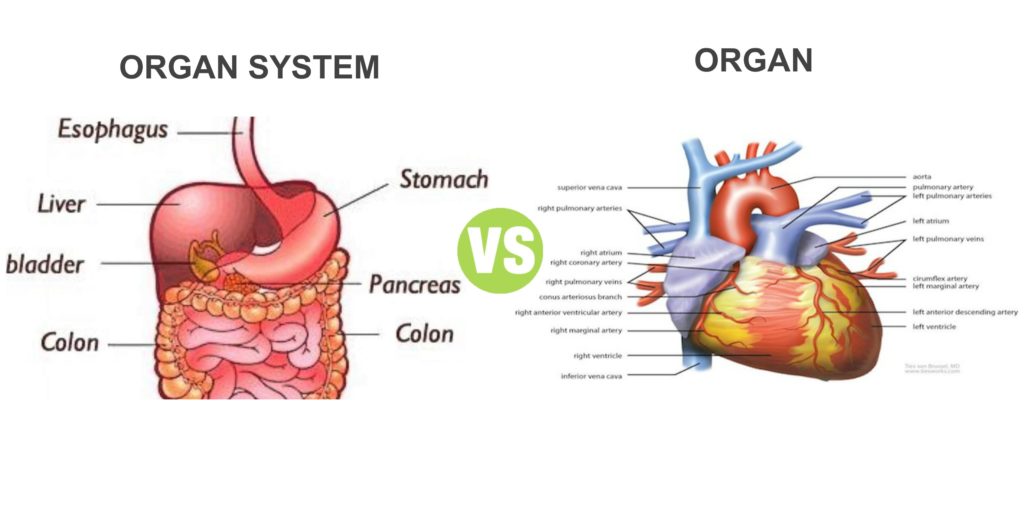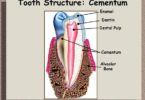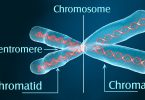Organ vs Organ System
Summary: Difference Between Organ and Organ System is that an organ is defined as the structure that is formed by two or more primary types of tissues, which execute the functions of the organ. While organ system is defined as group of organs that work together to carry out specific functions of the body. Each system performs a specific function.

ORGAN
An organ is defined as the structure that is formed by two or more primary types of tissues, which execute the functions of the organ. Some organs are composed of all the four types of primary tissues. The organs are of two types, namely tubular or hollow organs and compact or parenchymal organs. Some of the organs in the body are brain, heart, lungs, stomach, intestine, liver, gallbladder, pancreas, kidneys, endocrine glands, etc.
ORGAN SYSTEM
The organ system is defined as group of organs that work together to carry out specific functions of the body. Each system performs a specific function. Digestive system is concerned with digestion of food particles. Excretory system eliminates unwanted substances. Cardiovascular system is responsible for transport of substances between the organs. Respiratory system is concerned with the supply of oxygen and removal of carbon dioxide. Reproductive system is involved in the reproduction of species.
Endocrine system is concerned with growth of the body and regulation and maintenance of normal life. Musculoskeletal system is responsible for stability and movements of the body. Nervous system controls the locomotion and other activities including the intellectual functions.
Also Read:
Difference Between Tissue and Organ
Difference Between Cell and Tissue






Leave a Comment
You must be logged in to post a comment.